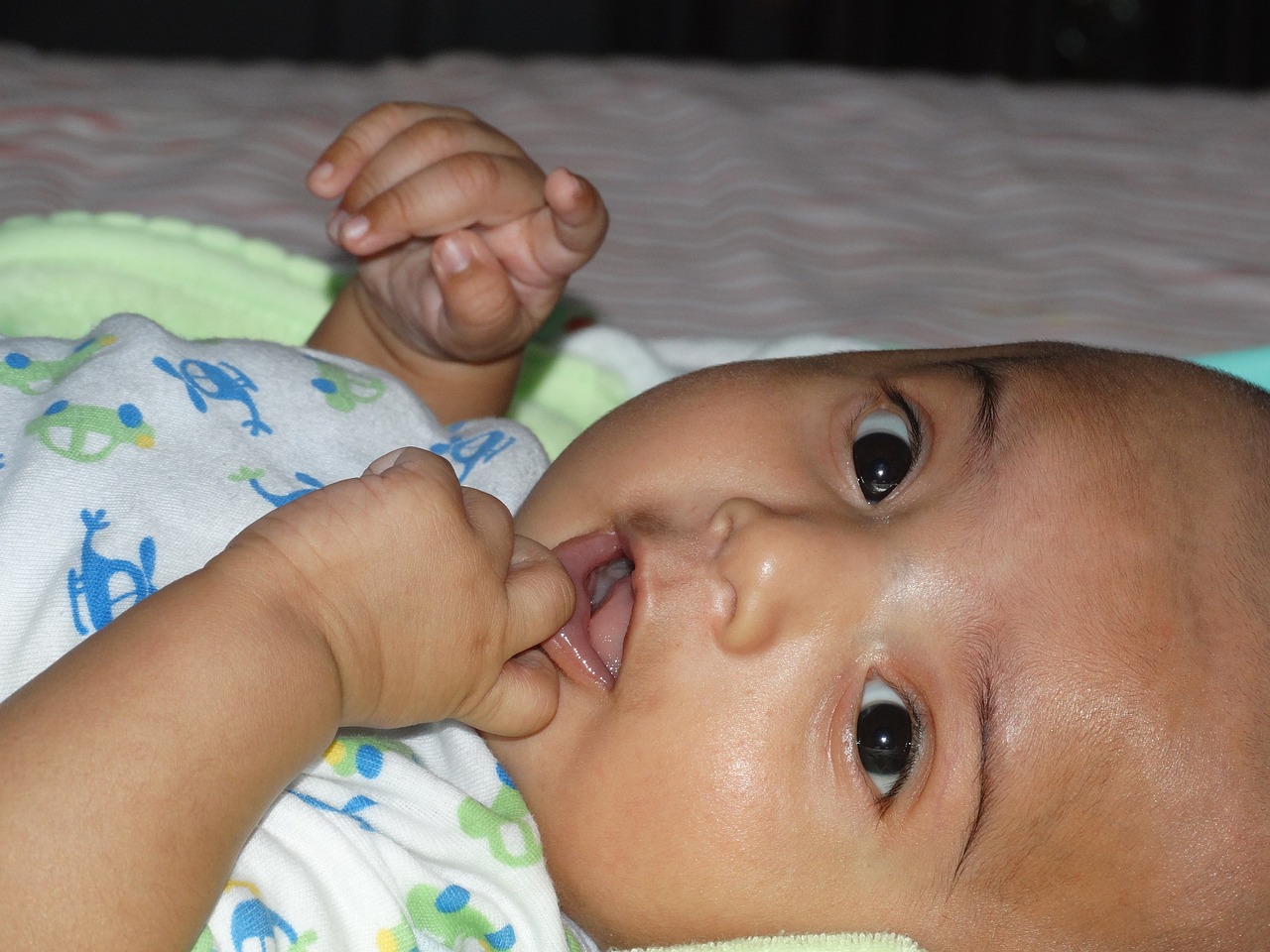Do Parenting Styles Influence the Resilience of Children?
When it comes to raising children, the styles parents adopt can have a profound impact on their emotional development and resilience. Imagine a tree growing in different environments; some trees flourish in rich soil with ample sunlight, while others struggle in rocky, shaded areas. Similarly, children raised under various parenting styles can either thrive or face significant challenges as they navigate life's ups and downs. In this exploration, we'll delve into how parenting styles—authoritative, authoritarian, permissive, and neglectful—shape not just the immediate behaviors of children but also their long-term emotional strength and coping mechanisms.
Resilience, defined as the ability to bounce back from adversity, is a critical trait that can be cultivated through effective parenting. The way parents interact with their children, the expectations they set, and the emotional support they provide can either fortify a child's ability to face challenges or leave them vulnerable to stress and anxiety. This article aims to illuminate the intricate dynamics between parenting styles and the resilience of children, offering insights into how these relationships can inform better parenting practices.
As we journey through this topic, consider the various traits associated with each parenting style and how they might either nurture or hinder a child's capacity to cope with difficulties. Whether you're a parent seeking guidance or simply curious about the impact of upbringing on emotional development, understanding these influences can pave the way for fostering stronger, more resilient individuals.
To grasp the influence of parenting styles on resilience, we first need to define the main types of parenting approaches. Each style comes with its own set of characteristics, and understanding these can help illuminate their potential effects on child development:
| Parenting Style | Characteristics | Potential Effects on Child Development |
|---|---|---|
| Authoritative | Warm, responsive, sets clear expectations | Promotes self-esteem, emotional regulation, and resilience |
| Authoritarian | Strict, demanding, less responsive | Can lead to anxiety, fear, and low self-esteem |
| Permissive | Lenient, indulgent, few boundaries | May struggle with self-discipline and emotional regulation |
| Neglectful | Uninvolved, indifferent, lacks supervision | Can result in emotional and psychological challenges |
In this framework, we can see how each parenting style presents unique challenges and opportunities for fostering resilience. The authoritative style, characterized by a balance of warmth and structure, often leads to the most positive outcomes. In contrast, authoritarian, permissive, and neglectful styles can create environments that hinder emotional growth and resilience.
Authoritative parenting stands out as a beacon of hope in the realm of child development. This style is often linked to positive outcomes, particularly in fostering resilience. Authoritative parents are not only warm and nurturing but also set clear expectations and boundaries. This combination creates a safe space for children to explore their emotions and the world around them. Think of it as a sturdy bridge that supports children as they navigate the sometimes tumultuous waters of life.
One of the key components of authoritative parenting is the emotional support provided to children. This support enhances children's self-esteem and equips them with essential coping skills. When children feel loved and valued, they are more likely to face challenges head-on rather than shy away from them. For instance, imagine a child who is encouraged to express their feelings openly; they learn to navigate their emotions and develop resilience, much like a sailor mastering the art of steering through rough seas.
Another critical aspect of authoritative parenting is the encouragement of independence. Authoritative parents allow their children to make decisions, fostering confidence and problem-solving skills. This independence is akin to giving a bird the freedom to fly; it allows children to explore their capabilities and learn from their experiences, ultimately contributing to their resilience.
Open dialogue is a hallmark of authoritative households. By promoting emotional expression, children learn to articulate their feelings and thoughts, which is vital for developing resilience. Imagine being in a relationship where you can freely discuss your worries and triumphs; this kind of communication strengthens bonds and builds emotional fortitude, preparing children to face life's challenges with confidence.
On the flip side, authoritarian parenting can significantly hinder resilience. By imposing strict rules without emotional support, children may develop a sense of fear and anxiety. They might feel trapped, much like a bird confined to a cage, unable to spread its wings. This lack of emotional nurturing can lead to difficulties in coping with stress, ultimately affecting their ability to bounce back from setbacks.
Permissive parenting, while often characterized by love and affection, can lack the necessary boundaries that children need to develop resilience. Without clear limits, children may struggle with self-discipline and find it challenging to manage stress and adversity. It's like a ship sailing without a compass; without direction, navigating life's storms can become overwhelming.
When parents fail to establish boundaries, children can find themselves in a precarious position, often struggling to understand the consequences of their actions. This lack of structure can lead to difficulties in facing challenges, which in turn impacts their resilience. Children may feel ill-equipped to handle life's inevitable ups and downs, making them more susceptible to stress and anxiety.
Moreover, permissive parenting may hinder the development of crucial emotional regulation skills. Children raised in such environments might find it difficult to manage their emotions effectively, which is essential for resilience. Just like a car without brakes, they may speed through life without the ability to slow down and process their feelings, leading to a higher likelihood of emotional turmoil when faced with adversity.
Neglectful parenting can have severe implications for a child's emotional and psychological development. In environments where care and supervision are lacking, children often face significant emotional challenges that can lead to low resilience. It's akin to a plant deprived of sunlight and water; without the necessary nurturing, it struggles to grow and thrive.
Children raised in neglectful environments frequently experience long-term emotional challenges. They may develop low self-esteem and increased vulnerability to stress, making it harder for them to bounce back from difficulties. This lack of support can have lasting effects, much like a shadow that follows them into adulthood.
Fortunately, early intervention strategies can help mitigate the negative effects of neglectful parenting. By providing support and resources, we can foster resilience and emotional growth in affected children. Just as a gardener tends to a wilting plant, nurturing these children can help them regain their strength and flourish.
- What is the most effective parenting style for fostering resilience? Authoritative parenting is generally considered the most effective, as it combines warmth with structure.
- Can resilience be developed later in life? Yes, while early experiences shape resilience, it can also be developed through supportive relationships and interventions later in life.
- How can parents support their child's emotional development? By providing emotional support, encouraging independence, and maintaining open communication, parents can significantly enhance their child's emotional resilience.

Understanding Parenting Styles
When it comes to raising children, the approach parents take can significantly influence their development and resilience. Parenting styles are generally categorized into four main types: authoritative, authoritarian, permissive, and neglectful. Each style carries its own characteristics and implications for a child's emotional and psychological growth. Understanding these styles can provide valuable insights into how children learn to cope with challenges and build resilience.
Let's dive a little deeper into what each of these styles entails:
| Parenting Style | Characteristics | Impact on Resilience |
|---|---|---|
| Authoritative | Warm, responsive, and sets clear boundaries | Promotes self-esteem and coping skills |
| Authoritarian | Strict, demanding, and less responsive | Can lead to fear and anxiety, hindering resilience |
| Permissive | Lenient, indulgent, and lacks clear boundaries | May struggle with self-discipline and stress management |
| Neglectful | Uninvolved and emotionally unavailable | Severe emotional challenges and low resilience |
Each of these styles can shape a child's emotional landscape in profound ways. For instance, authoritative parents are often seen as the ideal model. They balance warmth with structure, fostering an environment where children feel safe to express their emotions while also learning to navigate challenges. This nurturing approach helps children build resilience, equipping them with the tools they need to face life's ups and downs.
On the other hand, authoritarian parenting can create a climate of fear and anxiety. Children raised in such environments may follow rules strictly but often lack the emotional support necessary to process their feelings. This can lead to a fragile sense of self and a reduced ability to cope with adversity.
Then there's permissive parenting, which can be a double-edged sword. While it often results in a loving atmosphere, the absence of boundaries can leave children unprepared for the realities of life. They might struggle with self-regulation and managing stress, which are crucial for resilience.
Lastly, neglectful parenting can have dire long-term effects. Children who grow up in neglectful environments frequently face significant emotional challenges, leading to a low resilience that makes them vulnerable to stressors throughout their lives. It’s crucial to understand that early intervention can make a difference, helping to foster emotional growth even in the most challenging circumstances.
In summary, understanding these parenting styles is essential for recognizing how they affect children's emotional development and resilience. Each style offers a different perspective on how children can learn to cope with life's challenges, and the impact of these styles can resonate throughout a child's life.

The Role of Authoritative Parenting
Authoritative parenting is often hailed as the gold standard when it comes to nurturing resilient children. This approach strikes a balance between structure and emotional support, creating an environment where children feel both safe and empowered. Think of it as a sturdy tree that provides shade and shelter while allowing its branches to sway freely in the wind. This duality is crucial for developing emotional strength and coping mechanisms in kids. So, how does this parenting style foster resilience?
One of the most significant aspects of authoritative parenting is the emotional support that these parents provide. This support is not just about being there during tough times; it's about actively engaging with children’s feelings and helping them understand their emotions. When children feel validated and understood, their self-esteem gets a much-needed boost. Imagine facing a challenge and knowing that your parent believes in you—that's a powerful motivator! This emotional backing equips children with essential coping skills, enabling them to bounce back from setbacks and navigate life's challenges with confidence.
Authoritative parents are also champions of independence. They encourage their children to make decisions, which helps build confidence and fosters problem-solving abilities. This doesn’t mean leaving kids to figure everything out on their own; rather, it’s about guiding them to make choices and learn from their consequences. For example, when a child is allowed to choose their extracurricular activities, they not only learn to weigh options but also develop a sense of ownership over their decisions. This autonomy is crucial for resilience, as it teaches kids that they have the power to influence their own lives.
Another hallmark of authoritative parenting is effective communication. In these households, open dialogue is encouraged, allowing children to express their thoughts and feelings without fear of judgment. This open line of communication helps children learn to navigate their emotions and develop resilience. When kids know they can talk to their parents about anything—from school stress to friendship troubles—they are more likely to seek help rather than suppress their feelings. This is akin to having a safety net; it allows them to take risks and face challenges, knowing they have support to fall back on.
In summary, the role of authoritative parenting in fostering resilience is multifaceted. By providing emotional support, encouraging independence, and maintaining effective communication, these parents equip their children with the tools they need to face adversity head-on. It's a nurturing approach that not only shapes resilient individuals but also fosters strong family bonds, creating a safe haven for emotional growth.
- What is authoritative parenting?
Authoritative parenting is a balanced approach that combines warmth and structure, allowing children to thrive emotionally and socially. - How does emotional support affect resilience?
Emotional support enhances self-esteem and coping skills, which are crucial for developing resilience in children. - Can authoritative parenting help in decision-making skills?
Yes! Encouraging independence helps children learn to make their own decisions and learn from the outcomes, fostering resilience.

Emotional Support and Resilience
When it comes to raising resilient children, emotional support plays a pivotal role. Imagine a sturdy tree that bends but does not break in the wind; this is what emotional support does for children. It provides them with a solid foundation, enabling them to develop self-esteem and effective coping skills. Children who receive consistent emotional backing from their parents are often better equipped to handle life's ups and downs. They learn that it’s okay to express their feelings, whether they’re happy, sad, or even angry. This open emotional landscape fosters resilience, allowing them to bounce back from challenges with greater ease.
Research shows that children who experience high levels of emotional support tend to exhibit stronger resilience. For instance, when parents actively listen and validate their children's feelings, they cultivate an environment where children feel safe to explore their emotions. This is crucial because children who feel understood are more likely to tackle problems head-on rather than shy away from them. In essence, emotional support acts as a buffer against stressors, helping children navigate through difficult times.
Furthermore, the quality of emotional support can vary. It’s not just about being there; it’s about how parents engage with their children. Here are some key aspects that highlight the importance of emotional support:
- Validation of Feelings: Recognizing and validating a child's emotions helps them understand that their feelings are normal and acceptable.
- Encouragement: Providing encouragement fosters a sense of capability, making children more likely to take on challenges.
- Safe Space for Expression: Creating a safe environment where children can express their thoughts without judgment promotes emotional growth.
In summary, emotional support is not merely an accessory in parenting; it is a vital component that shapes a child's resilience. By nurturing their emotional landscape, parents can empower their children to face life’s challenges with confidence and strength. It's like giving them a toolkit filled with essential skills that they can draw upon whenever they encounter obstacles. In turn, this emotional resilience will serve them well throughout their lives, enabling them to thrive in various situations.
1. What is the role of emotional support in building resilience?
Emotional support helps children feel valued and understood, which boosts their self-esteem and coping skills, essential for resilience.
2. How can parents provide emotional support?
Parents can provide emotional support by actively listening, validating feelings, and encouraging open communication.
3. What are the consequences of lacking emotional support?
Lacking emotional support can lead to low self-esteem, difficulties in emotional regulation, and increased vulnerability to stress.

Encouraging Independence
When it comes to parenting, one of the most powerful gifts you can give your child is the ability to be independent. Authoritative parents understand that fostering independence is not just about allowing kids to make choices; it's about equipping them with the tools they need to navigate life’s challenges confidently. Imagine teaching a child to ride a bike. At first, they may wobble and fall, but with your guidance and encouragement, they learn to balance and pedal on their own. This analogy perfectly captures how independence works in child development.
Encouraging independence means allowing children to make decisions, face consequences, and learn from their mistakes. This process is crucial for building resilience. When children are given the freedom to explore their interests and make choices, they develop a sense of ownership over their actions. They learn that it's okay to fail sometimes; what's important is how they pick themselves up and try again. For instance, if a child decides to take on a challenging school project, they might struggle initially. However, with the right support from their parents, they can figure out how to overcome obstacles, which ultimately boosts their confidence.
Moreover, independence fosters critical thinking and problem-solving skills. When children are allowed to make decisions, they learn to weigh options and consider outcomes. This skill set is invaluable as they grow older and face more complex challenges. For example, a child who chooses their extracurricular activities is not just filling their schedule; they are learning to prioritize their interests and manage their time effectively. The ability to make such choices translates into resilience, as these children become adept at handling stress and uncertainty.
It's also essential for parents to provide a safe space for their children to express themselves. Open communication allows kids to share their thoughts and feelings, which is vital for emotional growth. When children feel heard, they are more likely to take risks and embrace independence. A simple question like, "What do you think we should do this weekend?" can open the door to discussions that empower children to express their preferences and ideas.
In conclusion, encouraging independence is a cornerstone of resilience. By allowing children to make choices, learn from their mistakes, and express their feelings, parents are not just raising self-sufficient individuals; they are cultivating emotionally strong and resilient adults. This approach not only benefits children in their formative years but also sets them up for success in the unpredictable journey of life.
- How can I encourage my child to be more independent? Start by allowing them to make small decisions in their daily routine, such as choosing their clothes or what to have for breakfast.
- What if my child makes a poor decision? Use it as a teaching moment. Discuss what went wrong and how they can approach similar situations differently in the future.
- How does independence relate to resilience? Independence builds confidence and problem-solving skills, which are essential for coping with challenges and overcoming adversity.

Effective Communication
Effective communication is the cornerstone of authoritative parenting and plays a pivotal role in fostering resilience in children. When parents engage in open dialogue with their children, they create a safe space where feelings can be expressed without fear of judgment. This practice not only strengthens the parent-child bond but also equips children with the necessary tools to navigate their emotions and challenges. Imagine a child who feels comfortable sharing their worries about school or friendships; this openness allows them to process their feelings and develop healthy coping mechanisms.
In authoritative households, communication is not just about talking; it’s about listening too. Parents who actively listen to their children validate their feelings and experiences, making the child feel understood and valued. This validation is crucial in building self-esteem, which is a vital component of resilience. When children know that their thoughts and emotions matter, they are more likely to approach challenges with confidence rather than fear. Moreover, effective communication helps children articulate their needs and problems, which is a fundamental skill for overcoming obstacles in life.
To illustrate the importance of effective communication, consider the following key aspects:
- Encouragement of Expression: Children learn to express their feelings openly, which is essential for emotional regulation.
- Problem-Solving Skills: Engaging in discussions about challenges helps children develop critical thinking and problem-solving skills.
- Building Trust: Open lines of communication foster trust, making children more likely to seek help when needed.
Furthermore, parents who model effective communication demonstrate how to handle conflicts and misunderstandings. When children observe their parents navigating disagreements respectfully and constructively, they learn valuable lessons about resolution and negotiation. These skills are indispensable as they grow and face their own conflicts, whether with peers or in other areas of life.
In conclusion, effective communication in authoritative parenting not only enhances emotional support but also equips children with the resilience they need to tackle life's challenges. By fostering an environment where feelings are shared and understood, parents lay the groundwork for their children to become emotionally strong and capable individuals.
- What is authoritative parenting? Authoritative parenting is characterized by warmth, structure, and open communication, promoting independence while providing guidance.
- How does effective communication influence resilience? It allows children to express emotions, build self-esteem, and develop problem-solving skills, all of which are crucial for resilience.
- Can neglectful parenting affect a child's emotional health? Yes, neglectful parenting can lead to significant emotional challenges, decreasing resilience and increasing vulnerability to stress.
- What can parents do to improve communication with their children? Parents can improve communication by actively listening, validating feelings, and encouraging open discussions about emotions and challenges.

Consequences of Authoritarian Parenting
Authoritarian parenting, characterized by high demands and low responsiveness, can have profound consequences on a child's emotional and psychological well-being. This style often emphasizes obedience, discipline, and strict adherence to rules, leaving little room for emotional expression or individual thought. As a result, children raised in such environments may develop a range of negative outcomes that can hinder their resilience.
One of the most significant impacts of authoritarian parenting is the development of fear and anxiety. When children are constantly exposed to harsh criticism and rigid expectations, they may begin to associate failure with punishment rather than an opportunity for growth. This fear can stifle their willingness to take risks or face challenges, which are essential components of resilience. Instead of viewing obstacles as learning experiences, these children may see them as threats, leading to a diminished sense of self-worth and an inability to cope with adversity.
Moreover, the lack of emotional support in authoritarian households can lead to difficulties in emotional regulation. Children may struggle to understand and express their feelings, which is crucial for navigating life's ups and downs. Without the tools to process their emotions, they might resort to unhealthy coping mechanisms, such as withdrawal or aggression, further isolating themselves from potential support systems. This emotional disconnect can create a cycle where the child feels increasingly overwhelmed, unable to bounce back from challenges.
Additionally, authoritarian parenting can stifle a child's independence and problem-solving skills. When parents dictate every aspect of a child's life without allowing them to make decisions or learn from their mistakes, it can lead to a lack of confidence. Children may grow up feeling incapable of handling situations on their own, which is detrimental to their resilience. They might become overly dependent on authority figures for guidance, leaving them ill-equipped to face the complexities of adulthood.
It's also important to note that the long-term effects of authoritarian parenting can extend into adulthood. Many individuals raised in such environments report feelings of inadequacy and low self-esteem, which can affect their personal and professional relationships. They may struggle with trust issues and have difficulty forming healthy attachments, further complicating their ability to navigate life's challenges. In essence, the authoritarian approach can create a cycle of emotional distress that persists long after childhood.
In summary, the consequences of authoritarian parenting are far-reaching and can significantly undermine a child's resilience. By fostering an environment of fear and rigidity, this parenting style not only hinders emotional development but also stifles independence and problem-solving capabilities. To cultivate resilience, it's crucial for parents to adopt a more balanced approach that combines structure with emotional support, allowing children the freedom to grow, learn, and thrive.

The Impact of Permissive Parenting
Permissive parenting is characterized by a lack of strict rules and boundaries, often resulting in a more relaxed approach to raising children. While this style may seem appealing due to its emphasis on freedom and self-expression, it can have significant implications for a child's resilience. Without the necessary structure and guidance, children may struggle to develop essential coping mechanisms that are crucial for navigating life's challenges. Imagine a ship sailing without a compass; it may drift aimlessly, unable to reach its destination. Similarly, children raised in permissive environments may find themselves ill-equipped to handle adversity.
One of the primary challenges associated with permissive parenting is the difficulty children face in setting limits for themselves. When parents do not enforce boundaries, children often lack the self-discipline needed to manage their behavior and emotions effectively. This can lead to a host of issues, including difficulty in managing stress, impulsivity, and an inability to cope with frustration. For instance, a child who has never been taught to adhere to rules might struggle in a structured school environment, where following guidelines is crucial for success.
Moreover, the absence of clear expectations can hinder the development of emotional regulation skills. Children need to learn how to manage their feelings, especially when confronted with challenges or setbacks. In a permissive setting, where emotional expression may be encouraged without guidance, children might express their feelings in unhealthy ways, such as tantrums or withdrawal. They may not learn how to channel their emotions constructively, which is a vital aspect of resilience. In essence, permissive parenting can create a scenario where children are emotionally unprepared for the realities of life.
To illustrate the potential pitfalls of permissive parenting, consider the following table that highlights key differences between permissive and authoritative parenting styles:
| Aspect | Permissive Parenting | Authoritative Parenting |
|---|---|---|
| Rules and Boundaries | Few to none | Clear and consistent |
| Emotional Support | Variable, often lacking | High, with open communication |
| Independence | Encouraged, but unstructured | Encouraged with guidance |
| Resilience Development | Limited | Strong |
In conclusion, while permissive parenting may foster creativity and self-expression, it can ultimately undermine a child's ability to develop resilience. The lack of boundaries and emotional regulation can leave children vulnerable to stress and challenges. As parents, it's essential to find a balance between granting freedom and providing the necessary structure that helps children thrive. After all, just like a well-tended garden needs both sunlight and support to flourish, children require both freedom and guidance to grow into resilient individuals.

Challenges in Setting Limits
One of the most significant challenges associated with permissive parenting is the difficulty in setting and enforcing limits. While it may seem like a good idea to give children the freedom to explore and make their own choices, this lack of boundaries can lead to confusion and anxiety. Imagine a ship sailing without a compass; it may drift aimlessly, unable to find its way. Similarly, children without clear guidelines may struggle to navigate the complexities of life.
When parents fail to establish consistent rules, children often become unsure of what is expected of them. This uncertainty can manifest in various ways, such as behavioral issues, poor academic performance, and difficulty in forming healthy relationships. For instance, without rules regarding homework or chores, a child might prioritize play over responsibility, leading to a cycle of stress and frustration. In essence, the absence of limits can create an environment where children feel overwhelmed and ill-equipped to handle challenges.
Moreover, the challenges of setting limits can also affect a child's ability to develop self-discipline. A child who is never told “no” may struggle to understand the concept of moderation. For example, if a child is allowed to indulge in sweets whenever they want, they may not learn to appreciate the value of a balanced diet. This lack of self-regulation can hinder their resilience, making it harder for them to cope with disappointments and setbacks later in life.
It's important to recognize that setting limits doesn't mean being authoritarian or overly strict. Instead, it involves creating a structured environment where children feel safe and supported. Here are some key aspects to consider when establishing boundaries:
- Consistency: Children thrive on routine. Consistent rules help them understand what is acceptable behavior and what is not.
- Clear Communication: Parents should explain the reasons behind the rules, helping children grasp the importance of limits.
- Flexibility: While consistency is crucial, being flexible allows parents to adapt rules as children grow and their needs change.
In conclusion, while permissive parenting may stem from a place of love and desire for freedom, the challenges in setting limits can significantly impact a child's development. By establishing clear boundaries, parents can equip their children with the tools they need to navigate life's challenges, ultimately fostering greater resilience.

Emotional Regulation Skills
This article explores the impact of various parenting styles on children's resilience, examining how different approaches can shape emotional strength and coping mechanisms in young individuals.
An overview of the main parenting styles—authoritative, authoritarian, permissive, and neglectful—highlighting their characteristics and potential effects on child development and resilience.
Authoritative parenting is often linked to positive outcomes in resilience. This section discusses how warmth, structure, and open communication foster emotional strength in children.
Emotional support provided by authoritative parents enhances children's self-esteem and coping skills, crucial for developing resilience in the face of challenges.
Authoritative parents encourage autonomy, allowing children to make decisions, which builds confidence and problem-solving abilities essential for resilience.
Open dialogue in authoritative households promotes emotional expression, helping children learn to navigate their feelings and develop resilience.
Authoritarian parenting can hinder resilience by imposing strict rules without emotional support, leading to fear and anxiety in children.
Permissive parenting often lacks boundaries, which can affect children's ability to cope with adversity. This section examines the relationship between permissiveness and resilience.
Without clear boundaries, children may struggle with self-discipline and face difficulties in managing stress and challenges, impacting their resilience.
Emotional regulation skills are essential for children to effectively manage their feelings and reactions, especially in stressful situations. When children grow up in a permissive environment, they often miss out on learning how to handle their emotions properly. This lack of guidance can lead to difficulties in recognizing and expressing feelings appropriately, which is a key component of resilience.
For example, a child who is not taught to cope with disappointment may react with anger or frustration instead of processing their emotions in a healthy way. This can create a cycle of emotional outbursts that not only affects the child but also those around them. In contrast, children who learn emotional regulation skills can navigate life's ups and downs more smoothly. They can recognize when they are feeling overwhelmed and apply coping strategies, such as deep breathing or talking to someone about their feelings.
To illustrate, here are some key emotional regulation skills that children should develop:
- Identifying Emotions: Recognizing what they are feeling and why.
- Expressing Feelings: Learning to communicate their emotions in a constructive manner.
- Problem-Solving: Finding solutions to emotional challenges rather than reacting impulsively.
- Seeking Support: Knowing when to ask for help from trusted adults or peers.
In summary, the lack of emotional regulation skills due to permissive parenting can hinder a child's resilience, making it crucial for parents to strike a balance between freedom and guidance. Teaching children how to regulate their emotions not only prepares them for challenges but also equips them with the tools to thrive in their personal and social lives.
Neglectful parenting can severely affect a child's emotional and psychological development. This section discusses the long-term implications for resilience and coping strategies.
Children raised in neglectful environments often face significant emotional challenges, leading to low resilience and increased vulnerability to stress.
Early intervention strategies can help mitigate the negative effects of neglectful parenting, fostering resilience and emotional growth in affected children.
- What are the different types of parenting styles? The main types are authoritative, authoritarian, permissive, and neglectful.
- How does authoritative parenting influence resilience? It fosters emotional strength through support, structure, and open communication.
- Can neglectful parenting be corrected? Yes, early intervention can help improve emotional and psychological outcomes.
- What role do emotional regulation skills play in resilience? They enable children to manage their emotions effectively, which is crucial for coping with challenges.

Neglectful Parenting and Resilience
Neglectful parenting can have a profound impact on a child's emotional and psychological development. In this style, parents may fail to provide the necessary support, attention, and care that children need to thrive. Essentially, neglectful parenting is like a garden left untended; without regular watering and care, the plants wither and struggle to grow. Similarly, children raised in neglectful environments often face significant emotional challenges, which can lead to low resilience and increased vulnerability to stress.
When parents are emotionally unavailable or indifferent, children may develop feelings of worthlessness, insecurity, and anxiety. These feelings can hinder their ability to cope with everyday challenges, making it difficult for them to bounce back from setbacks. For example, a child who does not receive praise or acknowledgment for their achievements may begin to doubt their abilities, leading to a lack of confidence in facing new challenges. This lack of confidence can manifest in various ways, such as avoiding difficult tasks or giving up easily when faced with obstacles.
Moreover, neglectful parenting can stifle the development of essential emotional regulation skills. Children need guidance to learn how to express their emotions appropriately and manage stress effectively. Without this guidance, they may resort to unhealthy coping mechanisms, such as withdrawal or aggression, which can further diminish their resilience. In essence, neglect can create a cycle of emotional turmoil that is hard to break, as children grow into adults who struggle with emotional regulation and resilience.
However, it's important to note that early intervention can make a significant difference. By providing support and resources to children who have experienced neglect, we can foster resilience and emotional growth. This may include therapy, mentorship, or community programs designed to help children build confidence and coping strategies. Just like a neglected garden can flourish again with the right care and attention, children can also thrive when given the support they need.
The long-term effects of neglectful parenting can be severe and far-reaching. Children raised in such environments often carry emotional scars into adulthood, leading to challenges in forming healthy relationships, maintaining stable employment, and managing stress. They may struggle with mental health issues such as depression, anxiety, or low self-esteem, which can hinder their ability to navigate life's challenges. The emotional toll of neglect can create a barrier to resilience, making it difficult for individuals to recover from setbacks or adapt to changing circumstances.
Recognizing the signs of neglect early on is crucial for mitigating its negative effects. Early intervention strategies can help foster resilience and emotional growth in affected children. Programs that focus on building emotional intelligence, social skills, and coping mechanisms can empower children to overcome their challenges. Additionally, creating supportive environments—whether at home, school, or in the community—can significantly improve a child's emotional health and resilience. Just as a well-timed intervention can transform a struggling garden into a thriving one, timely support can help children flourish despite their difficult beginnings.
- What is neglectful parenting? Neglectful parenting refers to a lack of emotional support, attention, and care from parents, which can adversely affect a child's development.
- How does neglectful parenting impact resilience? Children raised in neglectful environments often struggle with emotional regulation, self-esteem, and coping skills, leading to lower resilience.
- Can neglected children become resilient? Yes, with early intervention and support, neglected children can develop resilience and emotional strength.
- What are signs of neglectful parenting? Signs may include lack of supervision, emotional unavailability, and failure to meet a child's basic needs.

Long-term Effects on Emotional Health
Children raised in neglectful environments often face a multitude of emotional challenges that can linger well into adulthood. The absence of parental guidance and support can create a vacuum in a child's emotional development, leading to significant long-term effects on their mental health. These children may struggle with feelings of worthlessness and inadequacy, as they have not received the nurturing and validation that is essential for healthy self-esteem. Over time, these emotional scars can manifest in various ways, including anxiety, depression, and difficulties in forming healthy relationships.
Moreover, neglectful parenting can hinder the development of crucial coping mechanisms that are necessary for navigating life's challenges. When children do not learn how to manage their emotions effectively, they may resort to unhealthy coping strategies as adults, such as substance abuse or avoidance behaviors. This lack of emotional regulation can create a cycle of distress that is hard to break, leading to further mental health issues down the line.
To understand the long-term implications of neglectful parenting, it can be helpful to look at some key emotional health outcomes:
| Emotional Health Outcome | Description |
|---|---|
| Low Self-Esteem | Children may grow up feeling unworthy and lacking confidence in their abilities. |
| Anxiety Disorders | Increased likelihood of developing anxiety-related conditions due to lack of emotional support. |
| Depression | Higher risk of experiencing depressive episodes as a result of unresolved emotional issues. |
| Relationship Difficulties | Struggles in forming and maintaining healthy relationships due to attachment issues. |
It is crucial to recognize that the impacts of neglectful parenting do not have to be permanent. Early intervention strategies can play a significant role in mitigating these negative effects. By providing support and resources to both children and their caregivers, we can foster resilience and emotional growth, helping to break the cycle of neglect. Programs that focus on emotional literacy, parenting skills, and mental health support can empower families to create nurturing environments that promote healthy emotional development.
In summary, the long-term effects of neglectful parenting on emotional health can be profound and far-reaching. However, with the right interventions and support systems in place, it is possible to cultivate resilience and help children overcome the challenges posed by their early experiences. By prioritizing emotional well-being and fostering supportive relationships, we can pave the way for healthier futures for these children.
- What are the signs of neglectful parenting?
Signs include lack of emotional support, absence of supervision, and failure to meet basic needs.
- How can I help a child from a neglectful background?
Providing emotional support, encouraging open communication, and advocating for professional help can be effective.
- Are the effects of neglect reversible?
Yes, with appropriate interventions and support, children can develop resilience and overcome past challenges.

The Importance of Early Intervention
Early intervention is crucial in addressing the effects of neglectful parenting on a child's emotional and psychological development. When children experience neglect, they often miss out on essential emotional support that helps them navigate life's challenges. This lack of support can lead to a myriad of issues, including low self-esteem, poor coping mechanisms, and an increased vulnerability to stress and anxiety. However, the good news is that timely intervention can significantly alter the trajectory of a child's development.
Research shows that the earlier the intervention, the better the outcomes. Programs that focus on enhancing emotional support, building resilience, and teaching coping strategies can help mitigate the adverse effects of neglect. Here are some key aspects of why early intervention is so vital:
- Restoring Emotional Bonds: Early intervention helps in re-establishing emotional connections between the child and caregivers. This can be achieved through therapy, counseling, and family support programs.
- Building Resilience Skills: Children who receive early support learn essential skills, such as problem-solving and emotional regulation, which are critical for resilience.
- Creating Safe Environments: Interventions often involve creating a safe and nurturing environment, which is fundamental for a child's emotional growth.
Moreover, early intervention programs can include various strategies tailored to the child's specific needs. These may encompass:
| Intervention Strategy | Description |
|---|---|
| Therapeutic Support | Providing access to mental health professionals who can guide children in processing their emotions and experiences. |
| Parenting Workshops | Educating parents on the importance of emotional support and effective parenting techniques to foster resilience in their children. |
| Community Programs | Engaging children and families in community-based activities that promote social skills and emotional well-being. |
In conclusion, the importance of early intervention cannot be overstated. By identifying and addressing the needs of children who have experienced neglect, we can help them develop the resilience necessary to face life's challenges. It's a proactive approach that not only benefits the child but also strengthens families and communities as a whole. So, if you know a child who might be struggling, remember that taking action sooner rather than later can make all the difference!
- What are the signs of neglect in children? Signs may include frequent absences from school, poor hygiene, lack of supervision, and emotional withdrawal.
- How can I help a child who has experienced neglect? Providing emotional support, encouraging open communication, and seeking professional help are essential steps.
- Are there specific programs for early intervention? Yes, various community organizations and mental health facilities offer early intervention programs tailored to children's needs.
Frequently Asked Questions
- What are the main parenting styles?
The main parenting styles include authoritative, authoritarian, permissive, and neglectful. Each style has distinct characteristics that can significantly affect a child's emotional development and resilience.
- How does authoritative parenting influence resilience?
Authoritative parenting fosters resilience by providing warmth, structure, and open communication. This supportive environment helps children develop self-esteem and effective coping skills, making them better equipped to handle challenges.
- What are the negative effects of authoritarian parenting?
Authoritarian parenting can hinder resilience as it often involves strict rules without emotional support. This lack of nurturing can lead to fear and anxiety in children, making it difficult for them to cope with adversities.
- Can permissive parenting affect a child's ability to cope?
Yes, permissive parenting can negatively impact a child's resilience. Without clear boundaries, children may struggle with self-discipline and emotional regulation, which are crucial for managing stress and challenges.
- What long-term effects does neglectful parenting have on children?
Neglectful parenting can lead to significant emotional challenges in children, resulting in low resilience and increased vulnerability to stress. These effects can persist into adulthood if not addressed.
- How can early intervention help children from neglectful backgrounds?
Early intervention can provide essential support and resources to children from neglectful environments, helping to foster resilience and emotional growth. This proactive approach can mitigate long-term negative impacts on their development.



















